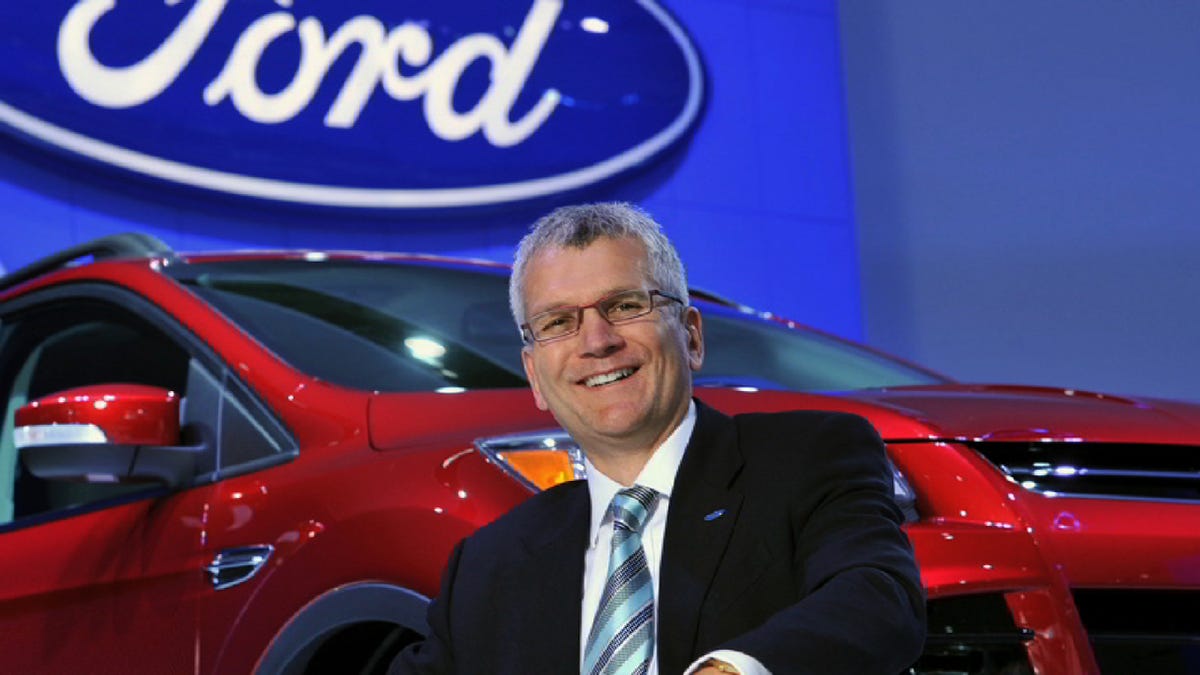Ford CTO: Google auto alliance a step forward, even if we're not joining
At CES, we've seen new, competing smart-car "standards" announced, and multiple manufacturers tying their data-enabled cars to specific carriers. Ford CTO Paul Mascarenas shares his thoughts on these developments -- and they might surprise you.

Paul Mascarenas has been CTO at Ford for over three years now. Compared to the long history of the automobile that's barely a blip, yet these past three years have seen major advancements in the sorts of technology installed and offered inside a modern car. Many manufacturers have added more intelligence to their cars since 2010 than they did in the 10 years previous.
Not Ford. That isn't to say that the company hasn't made huge progress over the past three years, as it surely has, but the company was well ahead of the curve when it introduced Sync in 2007. While other manufacturers have had some catching up to do with their smart cars, Ford seems to be focusing on filling in the blanks.
At this year's International CES the company knocked out a few more, rolling out Sync AppLink capability to 3.4 million cars -- though sadly the service, which allows smartphone apps to talk directly to the car, still isn't compatible with the latest MyFord Touch-equipped vehicles. This update also enhances AppLink functionality on newer cars, allowing smartphone apps to read key data from the car, things like speed and fuel consumption.
This will, in theory, greatly extend the functionality of these apps and Ford hopes this, plus a coder-focused conference this summer, will woo more app developers to support the company's cars. By extension, they'd be supporting the nascent Smart Device Link API, which the Blue Oval has positioned as an industry standard. (A standard strengthened by Ford's recent acquisition of Livio). However, it's far from the only standard out there, and at this year's CES a few more were thrown on the pile.
Far and away the most talked about of these fledgling interfaces came from Google. The Open Auto Alliance (or OAA) is "committed to bringing the Android platform to cars starting in 2014," and while exactly what that means remains unclear, it's readily apparent that Ford is not among the initial members of this group (which currently includes GM, Audi, Honda, and Hyundai).
From the outside, this certainly looks like a competing option to Ford's Smart Device Link, but Mascarenas isn't bothered. "I don't think in any way it's frustrating. If anything it's good for the industry. It avoids fragmentation and takes complexity out of things. Just like we're promoting AppLink as an industry standard it takes complexity out for the developers...We're very happy with what we're doing, with our work with the Livio guys, but we're open to work with others as well."
The areas of smartphone connectivity and smart cars are, you see, still so rough that any attempt at standardization actually managing to bring multiple manufacturers together is a step forward. That's despite some of these steps creating some interesting internal conflict. General Motors, for example, already relies on Livio's API for its Spark and just launched its own Connected by OnStar initiative for HTML5-based in-car apps. GM signing on to the OAA means that one company offers at least three separate app platforms, a situation that must give its own developers headaches, never mind those on the outside.
Mascarenas and Ford, on the other hand, have chosen not to join the OAA -- at least not yet. "We've talked to those people as well. I wouldn't use the term 'vague,' but it's very open. That's a good thing. I think the vision is excellent, I really do. No concerns from Ford." Especially since there may be an opportunity to merge the two standards, or at least modify one to support the other. "I think in the end we'll do the right thing for the customer. For me, it's not so much how you connect things. People don't really care about that. It's more about the content and the experience."
This echos Mascarenas' thoughts on both GM and Audi announcing partnerships with AT&T to provide LTE connectivity to their cars. In Europe, traditionally, data-enabled cars have had SIM slots that enabled 3G data from any carrier. In the US, and with the spread of LTE, manufacturers are more frequently taking this approach of tying their cars to a specific provider -- often Ma Bell in the US.
According to Mascarenas, you shouldn't be forced to get a new data plan on one carrier just to support our car. "Our strategy has always been device agnostic...It comes back to this vehicle just being another device. You should be able to add this to whatever plan you've got. I'm just talking as a customer and what would I expect? It's nice to talk about technology, but we have to keep coming back to the customer experience first."
And, for the short-term at least, Mascarenas believes that connectivity through the data-enabled devices we already own will continue to be the simplest way. "Do you see these going away?" he asks, gesturing toward a smartphone sitting on the table.

